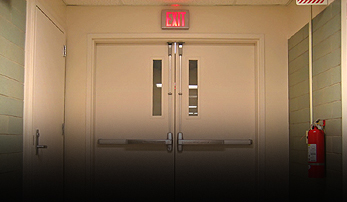From Accra’s Streets to Global Screens Examining the latest ghana news today and its worldwide reson
- From Accra’s Streets to Global Screens: Examining the latest ghana news today and its worldwide resonance.
- Political Landscape and Governance
- Parliamentary Debates and Legislative Updates
- Challenges to Democratic Institutions
- Economic Developments and Business Climate
- Investment Opportunities in Key Sectors
- Challenges and Opportunities in the Financial Sector
- Social Issues and Quality of Life
- Education Reforms and Access to Quality Education
- Healthcare Access and Public Health Concerns
- Cultural Highlights and Social Trends
- The Role of Traditional Media and New Media
- The Impact of Globalization on Ghanaian Society
From Accra’s Streets to Global Screens: Examining the latest ghana news today and its worldwide resonance.
The flow of information is critical in today’s interconnected world, and Ghana is no exception. Keeping abreast of current events within the nation, and understanding their global implications, is paramount for citizens, businesses, and international observers alike. Exploring ghana news today reveals a dynamic landscape of political developments, economic shifts, social changes and cultural happenings. This article aims to provide a comprehensive overview of the most significant events unfolding in Ghana, and their reverberations across the international stage, offering insights into the nation’s progress and challenges.
Political Landscape and Governance
Ghana has long been considered a beacon of democracy in West Africa, with a relatively stable political system and a commitment to the rule of law. However, recent political developments continue to shape the nation’s trajectory. Discussions surrounding electoral reforms, the role of opposition parties, and the ongoing fight against corruption are central to the current political discourse. The performance of the current government, its policy initiatives, and public reaction to them, also play a vital role in shaping the country’s political climate. Understanding these elements is key to understanding the broader political landscape and the challenges and opportunities that lie ahead.
Parliamentary Debates and Legislative Updates
The Ghanaian Parliament serves as a critical arena for debate and legislative action. Recent parliamentary sessions have been marked by intense discussions on key legislation related to economic policy, social welfare programs, and constitutional amendments. These debates often reflect the diverse perspectives of the ruling and opposition parties, creating a dynamic and sometimes contentious environment. Key areas of focus include budget allocations, tax reforms, and the implementation of new regulations affecting various sectors of the economy. The legislative updates are crucial for understanding the near-future direction of the country’s legal and regulatory framework. Analyzing these debates provides insights into the priorities and agendas of different political actors and how they are influencing the policies that have the power to shape the lives of Ghanaians.
Challenges to Democratic Institutions
While Ghana is lauded for its democratic governance; challenges persist. Issues such as freedom of the press, police brutality, and the influence of money in politics continue to be points of concern for civil society organizations and international observers. Maintaining the health of democratic institutions requires constant vigilance and a commitment to transparency, accountability, and the protection of fundamental rights. Strengthening institutions, promoting civic engagement, and fostering a culture of respect for the rule of law are therefore essential for safeguarding Ghana’s democratic gains. Active participation from the media and citizenry is vital as well. More discussion is needed on improving the processes of judicial accountability, voter rights and promoting a free transparent media environment.
Economic Developments and Business Climate
Ghana’s economy has experienced both periods of robust growth and times of significant challenge. Recent economic developments are dictated by global commodity prices, particularly cocoa and oil, as well as the country’s fiscal management policies. Analyzing these factors is very important for understanding the health of the nation’s economy. Key indicators like GDP growth, inflation rates, unemployment figures, and foreign direct investment provide a comprehensive picture of Ghana’s economic performance. Exploring these metrics offers insights into the investment climate and the opportunities available to both domestic and international businesses.
| GDP Growth Rate (%) | 3.4 | 3.6 |
| Inflation Rate (%) | 31.7 | 25.7 |
| Unemployment Rate (%) | 12.9 | 12.5 |
| Foreign Direct Investment (USD Millions) | 800 | 950 |
Investment Opportunities in Key Sectors
Several sectors in Ghana offer significant potential for investment, including agriculture, mining, infrastructure, and tourism. The agricultural sector is a major employer, offered opportunities in both crop production and agribusiness. The mining sector, rich in resources like gold and bauxite, attracts considerable foreign investment. Investing in infrastructure is essential for supporting economic growth, offering opportunities in road construction, energy generation, and port development. Tourism, with its unique cultural attractions and natural beauty, relies on promoting hotel investment. Recognizing the opportunities in these sectors is vital for long-term economic development.
Challenges and Opportunities in the Financial Sector
Ghana’s financial sector has shown impressive growth, yet faces challenges related to financial inclusion, access to credit, and the stability of financial institutions. Ensuring that a broader segment of the population has access to financial services is critical for inclusive economic growth. Addressing difficulties related to obtaining loans for small and medium-sized businesses and reinforcing the financial stability of banks are essential for fostering a thriving economic environment. Opportunities lie in innovations related to mobile banking, digital finance, and regulatory reforms aimed at improving transparency and accountability. Furthermore a healthy financial sector is integral in attracting domestic and foreign investment to enable further infrastructure projects and drive economic growth.
Social Issues and Quality of Life
Beyond politics and economics, numerous social issues impact the quality of life for Ghanaians. These include education, healthcare, access to clean water and sanitation, and the fight against poverty. Prioritizing these pressing matters is absolutely essential for improving the well-being of the population. Addressing these challenges is a complex undertaking, requiring coordinated efforts from government, civil society organizations, and international stakeholders. Sustainable development depends on investing in human capital, improving social infrastructure, and empowering vulnerable communities.
- Access to Education
- Healthcare Availability
- Clean Water Initiatives
- Poverty Reduction Strategies
Education Reforms and Access to Quality Education
Access to quality education remains a top priority for Ghana. Ongoing education reforms are aimed at improving curriculum development, teacher training, and infrastructure. Initiatives like the Free Senior High School policy aim to expand access to secondary education, but is faced with sustainability and funding challenges. Removing barriers to education for marginalized groups, particularly girls and children in rural areas, is very important. Investing in vocational training and skills development creates a workforce equipped to meet the demands of the modern economy. These initiatives are vital for ensuring a more equitable and prosperous future. Continuous monitoring of programs and allocating resources effectively ensures that reforms are impactful.
Healthcare Access and Public Health Concerns
Improving access to healthcare and tackling public health concerns are critical for safeguarding the well-being of the Ghanaian population. Various challenges affect healthcare access, including limited infrastructure, a shortage of healthcare professionals, and inadequate funding. Addressing these challenges requires strategic investments in healthcare infrastructure, particularly in rural areas, and increased training opportunities for healthcare workers. Efforts to combat diseases like malaria, cholera, and HIV/AIDS, through prevention programs, treatment, and improved sanitation, are vital. By strengthening the healthcare system and promoting public awareness, Ghana can improve health outcomes and enhance the quality of life for its citizens.
Cultural Highlights and Social Trends
Ghana boasts a rich cultural heritage, with diverse traditions, festivals, and artistic expressions. Preserving and promoting this cultural heritage is not only essential for national identity but also for tourism and economic development. From vibrant music and dance to colorful textiles and traditional crafts, Ghana’s culture attracts visitors from around the world. A burgeoning creative economy, driven by local artists, musicians, and designers, is gaining international recognition. Exploring these cultural highlights and social trends provides a deeper understanding of the values, beliefs, and aspirations of the Ghanaian people.
- Traditional Festivals and Ceremonies
- Ghanaian Music and Dance
- Art and Craft Traditions
- Evolving Social Norms
The Role of Traditional Media and New Media
Information dissemination in Ghana is evolving, with traditional media like radio and television coexisting with new digital platforms. Radio remains a powerful medium, particularly in rural areas, providing news, information, and entertainment. Television plays an increasingly important role in urban areas, offering access to both local and international content. The rise of social media and online news platforms has transformed the information landscape, with citizens increasingly turning to these sources for updates and perspectives. Understanding the interplay between traditional and new media is crucial for comprehending how Ghanaians access and share information. Careful regulation is also important to counter misinformation.
The Impact of Globalization on Ghanaian Society
Globalization is profoundly shaping Ghanaian society, bringing both opportunities and challenges. Increased integration into the global economy has led to economic growth, but also to new forms of inequality and social disruption. The influx of foreign cultures and ideas has enriched the country’s diversity, but also raised concerns about the erosion of traditional values. Managing the impacts of globalization requires a balanced approach that embraces the benefits of openness while safeguarding cultural identity and promoting sustainable development. Investing in education, promoting local entrepreneurship, and fostering a sense of national pride are crucial for navigating this complex process successfully.
The future of Ghana hinges on addressing these challenges and seizing the opportunities that lie ahead. Continued commitment to democratic governance, sustainable economic growth, and inclusive social development are essential for building a more prosperous and equitable future for all Ghanaians. Monitoring these details of ghana news today continues to reveal a vibrant and dynamic nation, poised to play an increasingly important role on the African continent and the world stage.









Recent Comments